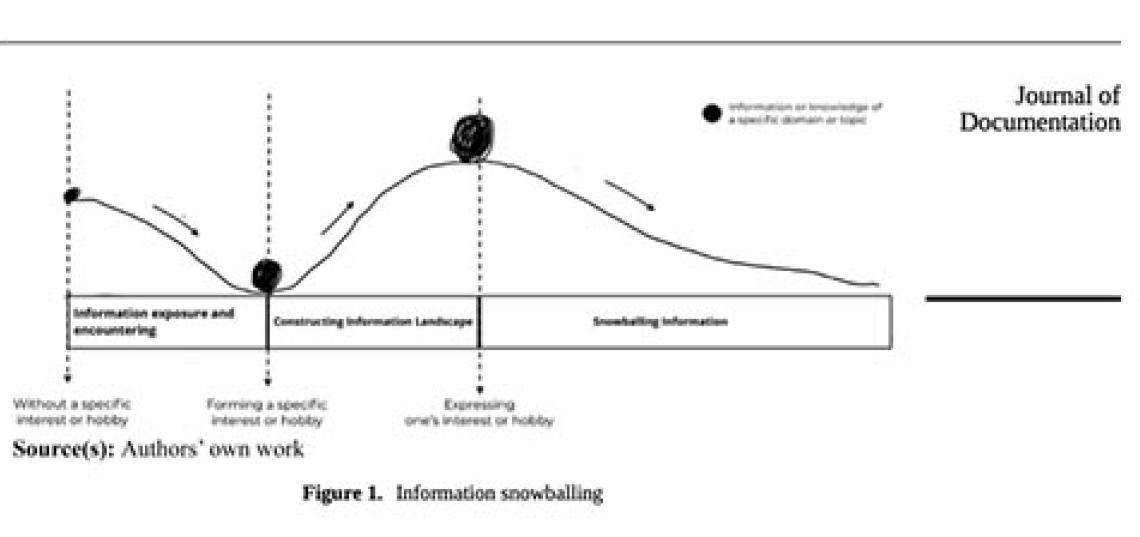
Rutgers researchers have identified a process they’ve named “information snowballing” to describe the gradual process lay people engage in as they seek to acquire new information and new sources of information about topics of interest to them.
Published in the Journal of Documentation, the study, “Information Snowballing: Information Practices in the Context of Sustainable Food Practices” was coauthored by SC&I Ph.D. candidate Xiaotong Du and Associate Professor of Library and Information Science Kaitlin Costello.
“As our participants sought to learn more about the topic that interested them, they gradually acquired, or ‘snowballed,’ new information from their ever-expanding lists of sources, including NGOs, social media groups, friends or family members, and other sources,” Du said. “Our proposed concept of ‘information snowballing’ reinforces the agency lay people have in their own information practices, and for scholars, it offers important insights into learning and knowledge acquisition in everyday information practices.”
During the study, originally undertaken to understand how laypeople use information and information sources to learn more about sustainability to guide their food choices and food acquisition practices, Du discovered that their study subjects were, without realizing it, amassing information by using a technique similar to ‘snowball sampling.’ This is a term qualitative researchers use to describe the method they use to find new study participants by recruiting them from their current participants’ social networks.
This study, Du said, “offers an example of how ethical consumers are not passive information receivers. They actively seek and build their own information landscapes."
Du said after initial interviews for this study, she realized the type of information-gathering process her study subjects were undertaking was “not a one-time decision but a lifelong journey of learning about sustainability before making food choices.”
The practice of ‘information snowballing’ Du and Costello identified in the context of this study includes several stages of information gathering, Du said. These are:
- Exposure to and encountering of information from external factors, even without a preexisting particular interest in a topic
- Gradually developing an interest and then actively constructing information landscapes based on that interest
- Slowly and passively snowballing information shared by information sources within that information landscape
This study, Du said, “offers an example of how ethical consumers are not passive information receivers. They actively seek and build their own information landscapes. They engage with information sources (e.g., in the case of sustainability and food, our subjects looked at food labels, documentaries, news), content creators or sustainability influencers, social media groups (e.g., zero-waste community), or organizations (e.g., local botanical gardens). Over time, we saw that our subjects will no longer need to seek sustainability-related information. Instead, the information will be snowballed in their everyday lives to shape their sustainable food choices.”
Their findings, Du and Costello said, contribute to:
- The theoretical development of information and knowledge acquisition in information science
- Highlight the agency laypeople have to create their own information practices within their sustainable food practices
- Connect concepts from everyday information practices to information landscapes
- Have empirical implications for raising public awareness of sustainability through informal education
“Understanding how people interact with information and technology enables us to design better services to meet their needs,” Du said. “Ethical consumers care about the why—why is one product more sustainable than another? What are the environmental and social impacts of their choices?”
Du said the practice of “information snowballing” can be adopted by all individuals or organizations interested in promoting a sustainable future to American society, Du said.
“Understanding how people interact with information and technology enables us to design better services to meet their needs,” Du said. “Ethical consumers care about the why—why is one product more sustainable than another? What are the environmental and social impacts of their choices?”
“We can incorporate information and knowledge about sustainability into everyday life and in ways that encourage long-term information snowballing. For example, if a company is making sustainability efforts, they can let consumers know– through food labeling, packaging, or posters. We can also raise public awareness about sustainability or climate change in both digital and physical spaces by integrating it with people’s interests and hobbies. For instance, we can educate surfers, outdoor enthusiasts, gardeners, or travelers about the impact of plastic waste on soil and water health, allowing them to ‘snowball’ information and knowledge about sustainability.”
Applying the practice of “information snowballing” beyond the topic of sustainability and food, the technique can be used by any lay person who is pursuing knowledge about any subject, Du said.
“Individuals interested in any topic—from sustainability to career growth—can use the information snowballing process to serve their purposes. For example, in terms of career growth, a student looking for an internship can announce their search on social media; subscribe to newsletters or job alerts; fellow HR professionals, alumni, and career coaches on LinkedIn; join professional social media networks; or actively seeking on online platforms to let algorithms know their interest. Just like ethical consumers gradually accumulate sustainability knowledge, job seekers can build an information landscape that gradually brings career opportunities to them.”
Learn more about the Ph.D. Program and the Library and Information Science Program on the Rutgers School of Communication and Information website.
Image: Courtesy of Du and Costello. Source: Page 17 “Information Snowballing: Information Practices in the Context of Sustainable Food Practices” in the Journal of Documentation.
